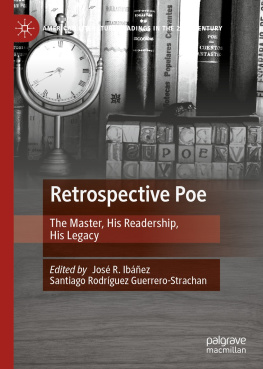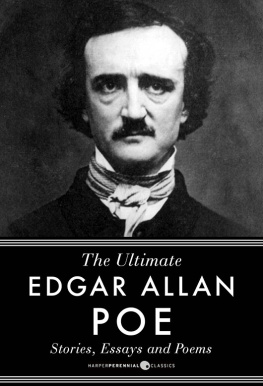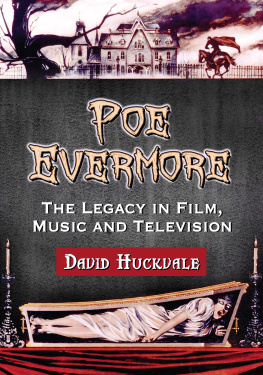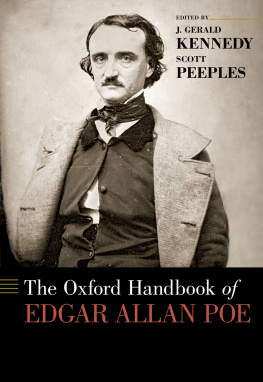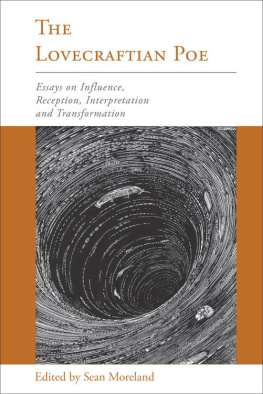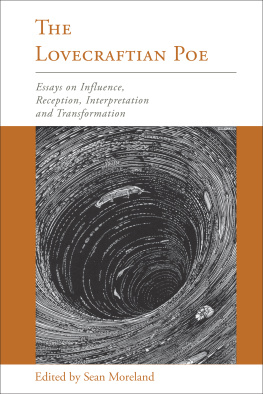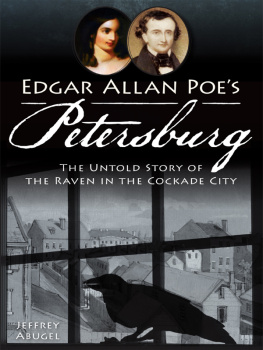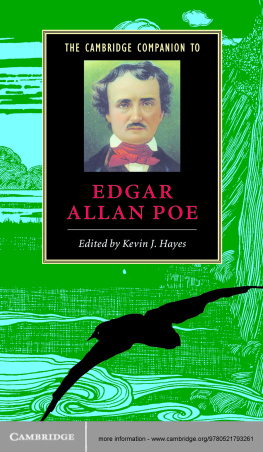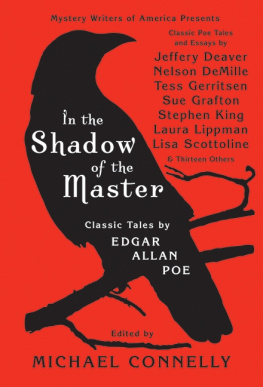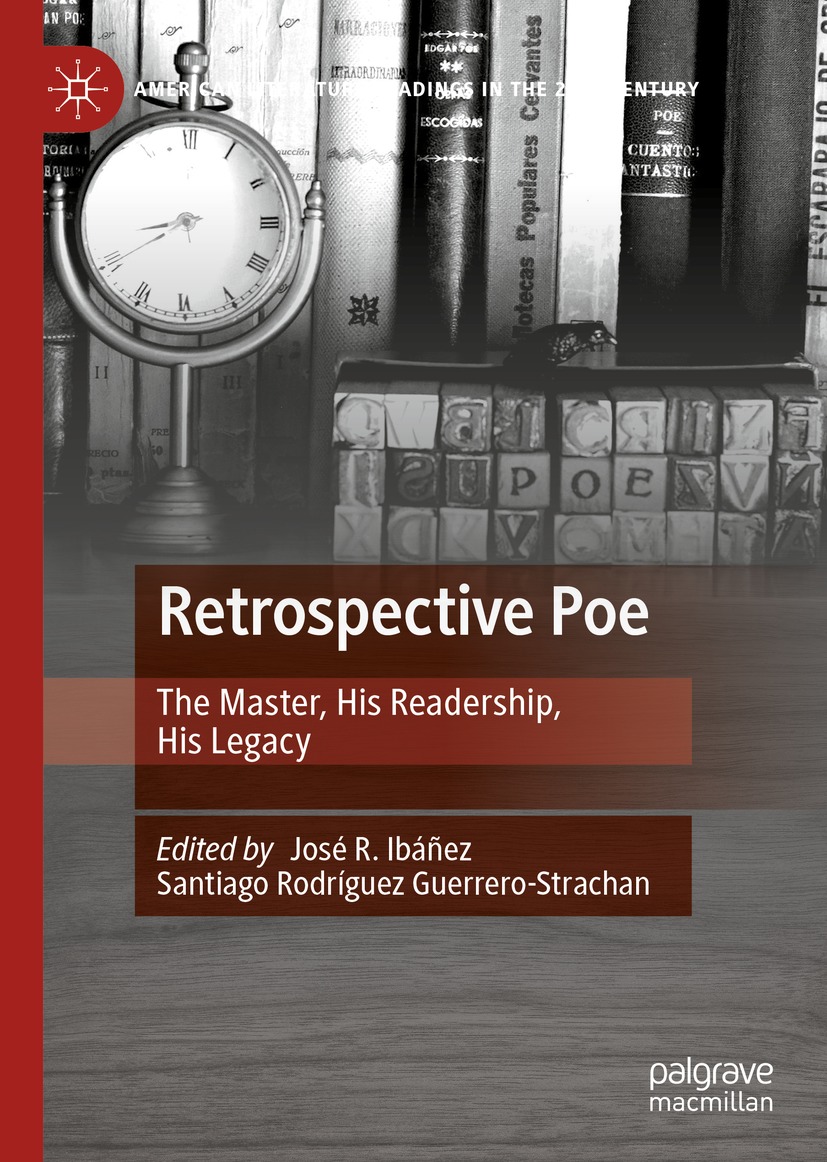American Literature Readings in the 21st Century
Series Editor
Linda Wagner-Martin
University of North Carolina, Chapel Hill, NC, USA
American Literature Readings in the Twenty-First Century publishes works by contemporary authors that help shape critical opinion regarding American literature of the eighteenth, nineteenth, twentieth, and twenty-first centuries. The books treat fiction, poetry, memoir, drama and criticism itselfranging from William Dows Narrating Class in American Fiction and Amy Strongs Race and Identity in Hemingways Fiction, to Maisha L. Westers African American Gothic and Guy Davidsons Queer Commodities: Contemporary U. S. Fiction, Consumer Culture, and Lesbian Subcultures.
Beginning in 2004, the series is now well established and continues to welcome new book proposals. Manuscripts run between 80,000 and 90,000 words, while the Pivot format accommodates shorter books of 25,000 to 50,000 words. This series also accepts essay collections; among our bestsellers have been collections on David Foster Wallace, Norman Mailer, Contemporary U.S. Latina/o Literary Criticism, Kurt Vonnegut, Kate Chopin, Carson McCullers, George Saunders, and Arthur Miller (written by members of the Miller Society).
All texts are designed to create valuable interactions globally as well as within English-speaking countries.
Editorial Board:
Professor Derek Maus, SUNY Potsdam, USA
Professor Thomas Fahy, Long Island University, USA
Professor Deborah E. McDowell, University of Virginia and Director of the Carter G. Woodson Institute, USA
Professor Laura Rattray, University of Glasgow, UK
Editors
Jos R. Ibez and Santiago Rodrguez Guerrero-Strachan
Retrospective Poe
The Master, His Readership, His Legacy

The Palgrave Macmillan logo.
Editors
Jos R. Ibez
Department of Philology/English Studies Division, University of Almera, Almera, Spain
Santiago Rodrguez Guerrero-Strachan
Department of English Philology, University of Valladolid, Valladolid, Spain
ISSN 2634-579X e-ISSN 2634-5803
American Literature Readings in the 21st Century
ISBN 978-3-031-09985-4 e-ISBN 978-3-031-09986-1
https://doi.org/10.1007/978-3-031-09986-1
The Editor(s) (if applicable) and The Author(s), under exclusive license to Springer Nature Switzerland AG 2023
This work is subject to copyright. All rights are solely and exclusively licensed by the Publisher, whether the whole or part of the material is concerned, specifically the rights of translation, reprinting, reuse of illustrations, recitation, broadcasting, reproduction on microfilms or in any other physical way, and transmission or information storage and retrieval, electronic adaptation, computer software, or by similar or dissimilar methodology now known or hereafter developed.
The use of general descriptive names, registered names, trademarks, service marks, etc. in this publication does not imply, even in the absence of a specific statement, that such names are exempt from the relevant protective laws and regulations and therefore free for general use.
The publisher, the authors, and the editors are safe to assume that the advice and information in this book are believed to be true and accurate at the date of publication. Neither the publisher nor the authors or the editors give a warranty, expressed or implied, with respect to the material contained herein or for any errors or omissions that may have been made. The publisher remains neutral with regard to jurisdictional claims in published maps and institutional affiliations.
Cover illustration: Photography by SRGS
This Palgrave Macmillan imprint is published by the registered company Springer Nature Switzerland AG
The registered company address is: Gewerbestrasse 11, 6330 Cham, Switzerland
Introduction: Re-assessing Poes Seductive Art
Over 200 years after his birth, Poes reputation is firmly established in world literature. Despite changes to the American canon, he remains a central figure in American literature and a seminal voice in the development of the modern short story globally. There is a broad consensus that Poes legacy relies to a great extent on the translations and essays of Charles Baudelaire. Indeed, so great was the importance of Baudelaire in the worldwide recognition of Poe that Paul Valry remarked that the American author would have been almost forgotten if Baudelaire had not taken up the task of introducing him into European literatures, a comment that Lois D. Vines considered both an exaggeration and an understatement (Vines 1999, 1). Had Baudelaire not regarded Poe as a model, the latters fame might well have faded, and he might now be regarded simply as one among many American writers of his age. Baudelaires discovery was consequential if one takes a cursory glance at the number of writers who have claimed to be under Poes influence in one way or another.
If, for the French poet and those he influenced, Poe became a cult figurewe might recall here Mallarms claim that he moved to London to improve his English in an attempt to better understand Poein England things were radically different. T.S. Eliots contentious essay From Poe to Valry, based on his Library of Congress lecture delivered in 1948 and published a year later in The Hudson Review, stands out as one of the most damning pieces of criticism on Poe. Eliot openly criticized Poe and declared that anyone examining his work would find nothing but slipshod writing (1949, 327). He even made the point that only a mind that was still adolescent could be attracted to Poes style, which he disparaged as puerile thinking (327). What puzzled Eliot above all was the passionate enthusiasm that Poes work aroused in Baudelaire , Mallarm , and Valry , three French poets who each offered an individual understanding of poetry and who became advocates for Poe, all playing significant roles in establishing Poes literary reputation.
Despite the harsh comments on Poe and his art, Eliots article is perhaps an interesting case of how writers, critics, artists, and the general readership have read and understood Poe. The audience for Poe is indeed a strange one: whereas there have been numerous anthologies of Poes fiction addressed to a young readership , adaptations of Poes work for the screen have largely been aimed at an adult audience. There is also the fact that Poe has been held in awe by a large number of adult readers, among them some very notable writers: Baudelaire , Pedro Antonio de Alarcn , Stphane Mallarm , Robert Louis Stevenson, Paul Valry , and Stephen King , to name just a few. All of them have claimed to have been influenced by Poes work, and none can be characterized as adolescent, though some of them are or were writers catering to a young readership in their own work.
Some of the contributors to Retrospective Poe have taken Eliots essay as a starting point, thus indicating the importance of Eliot as a critic even now, with the days of Modernism long gone. Taking that essay as a point of departure might lead contributors to downplay the importance of Poe or the extent of his influence on literature. Yet quite the contrary is true; the chapters herein attest to the vitality of such reception studies in terms of their subjects and approaches. This may be because, as Studniarz argues, Eliots response to Poes literary legacy is puzzling and complicated (99). Eliot may have felt that Poe posed a threat to the poetry he himself wrote, and thus preferred to criticize him harshly if only to avoid any literary relationship. To the names mentioned above we should add another great Modernist author, Jorge Luis Borgesthe precursor of literary Postmodernismwho also acknowledged the influence of Poe on his work, to the point of claiming that the American writer was the originator of the modern short story (Esplin 2018). Borges was an avid reader who repeatedly pointed out his indebtedness to Poe, whom he had read in his childhood (16).

